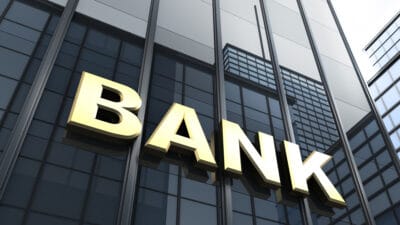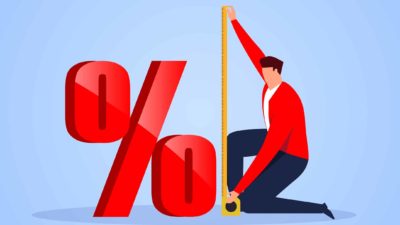The Commonwealth Bank of Australia (ASX: CBA) share price went downhill in September. It fell by 7%. That compares to the S&P/ASX 200 Index (ASX: XJO) falling by 7.3%.
This means that the ASX 200 bank share slightly outperformed the ASX share market last month.
While 0.3% outperformance isn't that much in the grand scheme of things, every little bit helps. Particularly when we're talking about such a large business on the ASX. At the time of writing, CBA has a market capitalisation of $154 billion.
What happened to the CBA share price last month?
There is plenty of volatility going on in the ASX share market and the global share market.
Investors are having to deal with factors like elevated inflation and higher interest rates.
At the end of the month, CBA announced it had met its enforceable undertaking obligations, which released the remaining operational risk capital overlay of $500 million. This represents an increase in the common equity tier 1 (CET1) capital of 15 basis points.
In early September, the Reserve Bank of Australia (RBA) decided to increase the cash rate target by 50 basis points (0.50%) to 2.35%.
Interest rate intervention
The RBA said that it's committed to returning inflation to a range of between 2% to 3% over time. It pointed out that the outlook for global economic growth has deteriorated due to "pressures on real incomes from high inflation, the tightening of monetary policy in most countries, Russia's invasion of Ukraine, and the COVID containment measures and other policy challenges in China."
Inflation is expected to be above 4% in 2023 and then around 3% in 2024. In other words, it could take more than 12 months for inflation to get close to its target range. How long it takes to get inflation under control could be a key factor for the CBA share price.
The labour market is one of the main things that the RBA said it's keeping an eye on. The labour market is "very tight and many firms are having difficulty hiring workers. Wage growth has also picked up from the low rates of recent years."
Households are in a mixed position – mortgage interest rates are rising, but many households have also "built up large financial buffers and the saving rate remains higher than it was before the pandemic".
Is the RBA done increasing? It seems highly unlikely. The RBA's latest monthly statement included this section:
Price stability is a prerequisite for a strong economy and a sustained period of full employment. The Board expects to increase interest rates further over the months ahead, but it is not on a pre-set path… The board is committed to doing what is necessary to ensure that inflation in Australia returns to target over time.
Why does this matter?
Most of CBA's business is about lending, so what is happening with interest rates could be key for the business and the CBA share price.
While plenty of analysts recognise that a higher RBA interest rate is likely to be helpful for ASX 200 bank share profitability, some of them are also cautious about what higher interest rates could mean for the resilience of their loan books.
CBA lends many billions to households, so an increase in loan arrears could be painful for the big bank.
Australian households are among the most indebted in the world. Higher interest rates – with no sign yet of central banks stopping – could have a knock-on effect on CBA.
Time will tell whether the pessimism around the CBA share price is justified.









